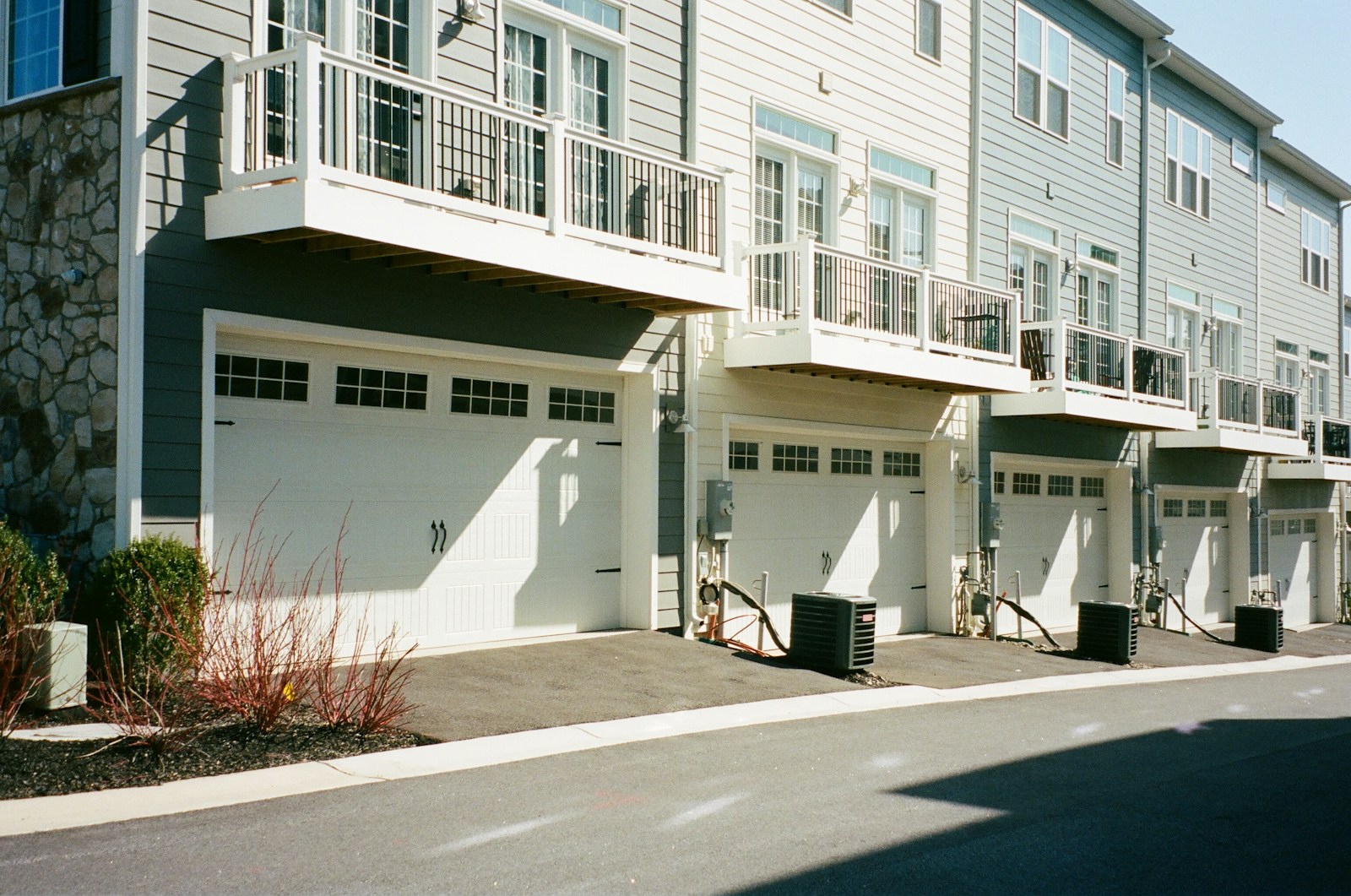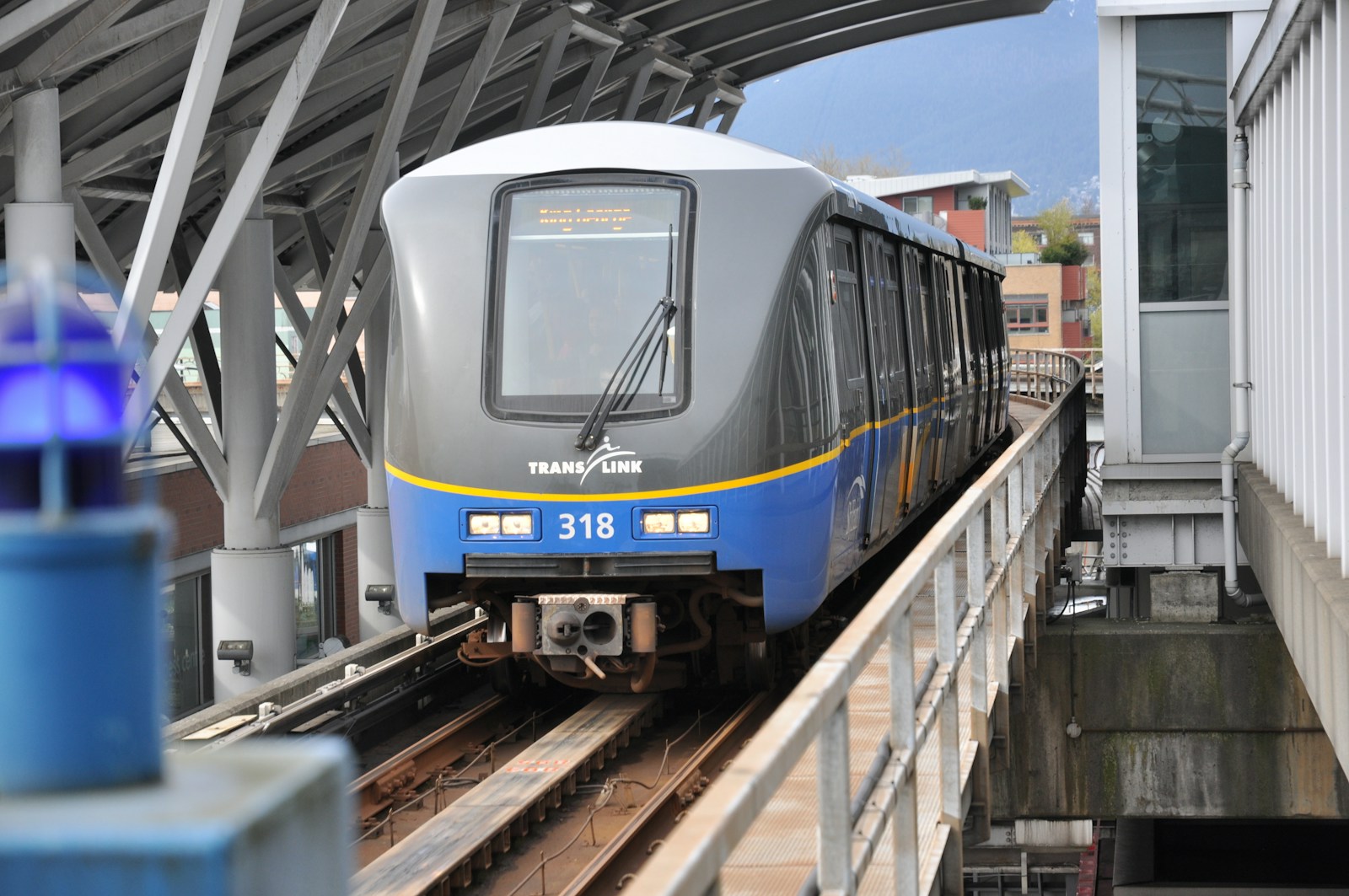You know that feeling when you step over the stroller for the third time today, stub your toe on a toy bin, and realize your "home office" is literally a corner of the dining table? Yeah. We've all been there.
If you're reading this, chances are your once-perfect condo is starting to feel less like a cozy nest and more like a very expensive storage unit where you occasionally sleep. The good news? You're not alone, and there's a beautiful solution waiting for you in East Vancouver: a townhouse with actual bedrooms, maybe even a yard, and—dare we dream—a door you can close for a Zoom call.
Let's talk about the telltale signs it's time to upsize, and more importantly, how to actually make it happen without losing your mind in the process!
Sign #1: You've Turned Every Nook Into a "Room" (And It's Still Not Enough)
Remember when that den was for storage? Then it became the nursery. Now your partner is working from the dining table while you take calls from the bedroom, and somehow there's still baby gear everywhere.
One Vancouver couple said their 1-bedroom was "getting a little tight with a 6-month-old" after they converted their storage space into a nursery and lost their home office completely. Sound familiar? When you're playing real-life Tetris with furniture and every square foot has three different purposes, that's your first big sign.
The shift from 750 square feet to a townhouse? Families call it "life-changing." And honestly, can you imagine having a dedicated space for work, play, AND sleep? Revolutionary, right?
Sign #2: You're Fantasizing About a Yard (Even a Small One!)
Here's the thing: when you start getting genuinely excited about the idea of your kid playing outside without you having to pack a bag, grab snacks, and trek to the park like it's an expedition... that's a sign.
Townhouses in East Van often come with yards—sometimes small, sometimes surprisingly spacious—but either way, it's yours. No elevator ride required. No forgetting the sunscreen upstairs and having to decide if it's worth the trip back up.
Plus, let's be real: indoor play is great until your energetic toddler starts using your condo walls as a climbing gym. A little outdoor space changes everything for everyone's sanity.
Sign #3: Your Storage Unit Costs Almost as Much as Another Bedroom
If you're paying $100-200 a month for off-site storage because your condo can't handle the seasonal stuff, the hand-me-down furniture, and all those "we might need this someday" items... quick math: that's basically another bedroom's worth of space you're already paying for!
Townhouses typically offer way more storage—actual closets (plural!), possibly a garage, maybe even a basement or crawl space. Imagine actually accessing your winter gear without a 30-minute drive to a storage locker. The dream!
Sign #4: You're Planning Baby #2 (Or Already There)
One kid in a one-bedroom? Doable, if not exactly spacious. Two kids? Now you're entering advanced-level space management. Where does everyone sleep? Where do all the toys go? And when exactly did your living room become entirely Lego-themed?
Many East Vancouver families start looking at townhouses around this exact moment—when the family is growing and the walls are (figuratively) closing in. A 3-bedroom townhouse means kids can eventually have their own rooms, you can maintain some adult space, and you're not constantly negotiating bedtime logistics like a hostage negotiator.
Sign #5: You're Constantly Daydreaming About "Just a Little More Space"
This is the big one. When you catch yourself browsing real estate listings during your lunch break, mentally rearranging townhouse floor plans, or sighing wistfully when you visit friends' places... your heart's already made the decision. Your brain just needs to catch up!
If you're feeling that pull—that "we've outgrown this" feeling mixed with excitement about what's next—trust it. That's not just wanderlust; that's your intuition telling you it's time for the next chapter.
Okay, I'm Convinced! So How Do I Actually Make This Happen?
Alright, here's where we go from dreaming to doing. Let's break this down into totally manageable steps, shall we?
Step 1: Get Your Money Situation Crystal Clear
I know, I know—not the fun part! But stick with me. Get pre-approved for a mortgage NOW, not when you fall in love with a place. You need to know exactly what you can afford at today's interest rates (currently hovering around 5-6%, which is... not what we'd love, but it is what it is).
Here's the reality check: compare your current condo payment to what a townhouse mortgage would look like. A $1.1M townhouse will cost significantly more monthly than your $600K condo—we're talking potentially thousands more when you factor in the mortgage, strata fees ($600-800/month is typical for older East Van complexes), property taxes, and utilities.
Set a walk-away number. This is the maximum you'll pay, no matter how perfect the place seems. Write it down. Tell your partner. Tattoo it on your arm if you have to. This number will save you from 2am regrets.
Step 2: Get Real About Townhouse Life
Quick reality check: townhouses aren't detached homes. You'll still have neighbors. You'll still share walls. You'll still have strata fees and bylaws to follow.
One Vancouver family was genuinely surprised when a neighbor complained their toddler was "outside too much and sings too much" in their yard. Like... that's what yards are for, right? But welcome to strata living! You'll most likely see and hear your neighbors regularly, and they'll definitely know when it's your kid's birthday party.
The good news? Built-in community! Need to borrow an egg? Your neighbor's 10 feet away. Want to organize a block party? Easy. Kids need playmates? Just knock next door.
Go into this with realistic expectations, and you'll be so much happier. Research strata fees, read those bylaws, and make sure the complex vibe fits your family's lifestyle.
Step 3: Time It Right (Or at Least Time It Smart)
Here's the tricky part: selling your condo and buying a townhouse ideally happens in some magical, perfectly coordinated dance. Reality? It's more like organized chaos, but we can work with that!
Your options:
Sell with a long closing period so you have time to find and buy your townhouse
Make your townhouse offer subject to selling your condo (though in competitive markets, this might not fly)
Have bridge financing as your backup plan if the timing doesn't align perfectly
One thing Vancouver families consistently regret? Waiting for the "perfect moment." Interest rates rose, budgets shrunk, and the townhouse they could afford "slipped out of reach." On the flip side, some regret jumping too fast and taking the first offer, only to watch similar units sell for way more.
My advice? If you're ready—truly ready—don't try to time the market perfectly. Work with what's happening now, get good advice, and trust your gut.
Step 4: Hunt Smart in East Van's Tight Market
Let's be honest: East Vancouver doesn't have tons of townhouses sitting around waiting for you. The entire Greater Vancouver region has only about 2,200 active townhome listings at any given time, and East Van gets a small slice of that pie.
This means you need to be ready to move FAST. Quality listings can attract multiple offers within days. Like, you-see-it-Saturday-and-offers-are-Monday fast.
Pro tips:
Get pre-approved so you can act decisively when you find "the one"
Widen your search to include Hastings-Sunrise, Cedar Cottage, or Renfrew-Collingwood if pickings are slim
Look at slightly older units (1980s builds) you could renovate—they often have more space
NEVER skip reviewing strata documents or getting an inspection, even if you're desperate
Think of this as a treasure hunt! Every viewing gets you closer to your place. Stay optimistic but flexible—sometimes the neighborhood you weren't initially considering ends up being where you make your best memories.
Step 5: Find Your Real Estate Soulmate (a.k.a. The Right Agent)
Listen, you could technically do this alone. But why would you want to? An experienced East Vancouver realtor who specializes in family upsizing is like having a friend who's already been through this whole process, knows all the shortcuts, and will talk you down when you're about to make an emotional decision at 11pm.
They'll help you navigate bidding wars, review those intimidating strata documents, time everything just right, and avoid the classic fear-based mistakes that lead to regrets.
Ask friends who've recently upsized for referrals. Find someone whose energy matches yours—someone who'll celebrate the wins but also be real with you about red flags. This person is your cheerleader and reality-checker rolled into one!
You've Got This!
Here's what I want you to remember: thousands of Vancouver families have successfully made this exact transition. They went from feeling cramped and overwhelmed to having space to breathe, play, and actually live.
Yes, it's a big deal. Yes, there will be stressful moments (probably involving paperwork at 9pm while your kid refuses to sleep). But in a year, you'll be sipping coffee in your yard, watching your little one play, working from an actual office, and wondering why you didn't do this sooner.
Start today. Have that conversation with your partner. Get pre-approved. Drive through some East Van neighborhoods and see what speaks to you. Take the first step, and the rest will follow.
Here's to more space, more joy, and your next big adventure! You've got this! 🏡✨


